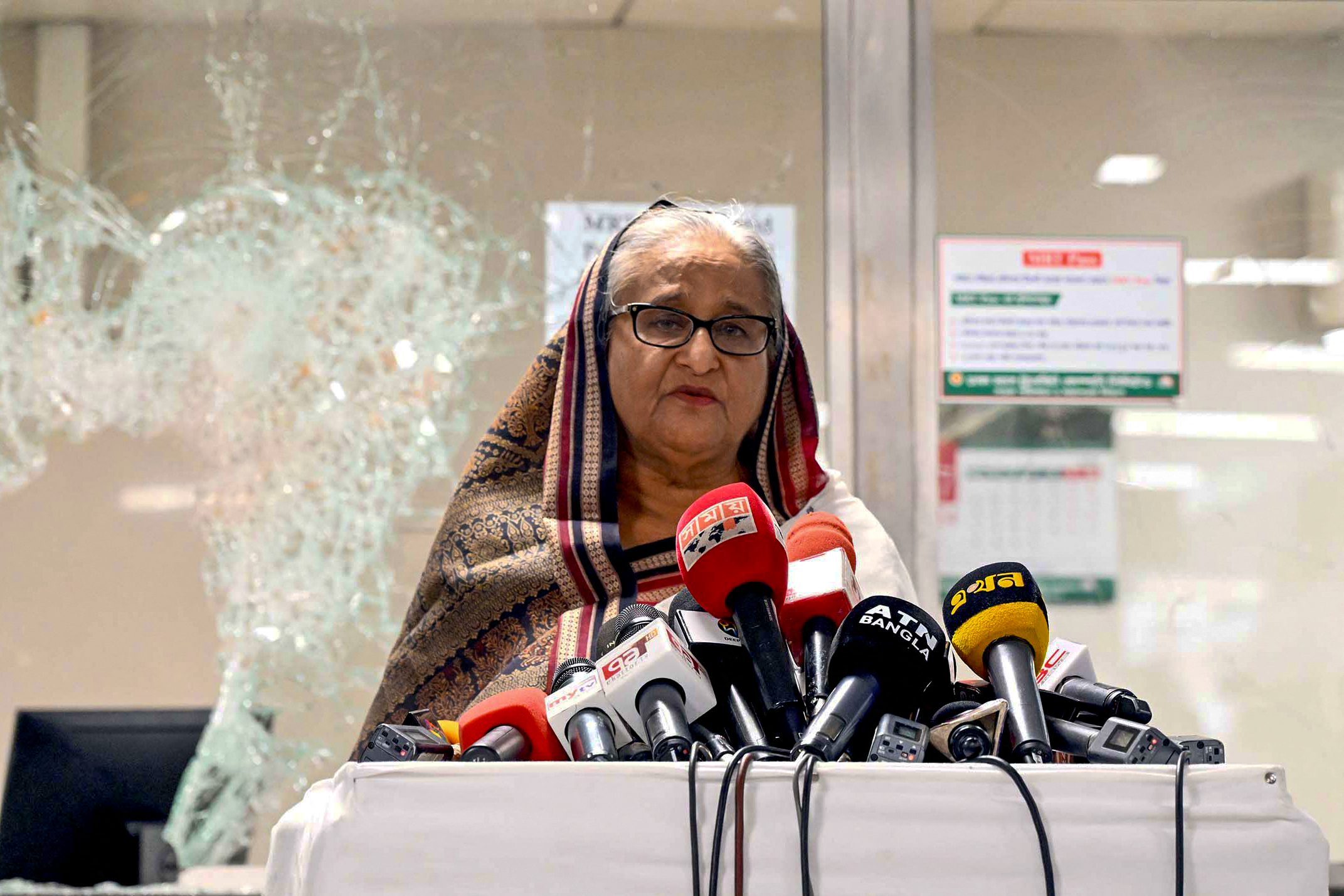Reports indicate that Bangladeshi Prime Minister Sheikh Hasina has resigned and fled the country, following a wave of violent protests that claim hundreds of lives.
These protests, involving around 400,000 participants, stem from frustrations over government policies and calls for Hasina’s resignation. The unrest intensified after the High Court reinstated a controversial quota system that allocates 30% of government jobs to the descendants of freedom fighters.
Hasina reportedly took refuge abroad on Monday, with army chief Waker-us-Zaman announcing plans for an interim government during her absence.

Rajib Dhar/AP Photo
The government’s refusal to negotiate has heightened tensions, especially among students, leading to violent confrontations with law enforcement. Tragically, a single day saw at least 98 deaths, pushing the overall death toll to over 300 since the protests began. In response to this unrest, authorities have intermittently shut down internet services and imposed curfews, though these measures have failed to quell the situation.

Getty Images
It is believed that Hasina is heading to India for safety, potentially landing in Agartala following the storming of her residence, Ganabhaban, by protesters shouting about her departure.
In a public statement, Hasina’s son, Sajeeb Wazed, called on security forces to protect the constitution and prevent an unelected government from seizing power. He emphasized: “This is not politics. The criminals are not students. They are terrorists and they must be stopped.”

Abdul Goni/Getty Images
The United Nations High Commissioner for Human Rights, Volker Turk, urged the Bangladeshi government to halt violence against peaceful protesters, stating, “The shocking violence in Bangladesh must stop.” Over the weekend, additional protesters were killed, along with 13 police officers in an attack on a police station in Sirajganj district.
As the situation remains precarious, protest leaders are calling for ongoing civil disobedience until their demands are addressed. The University Teachers’ Network has suggested establishing an interim government comprising representatives from various sectors, a move the military seems inclined to support, according to Reuters.
